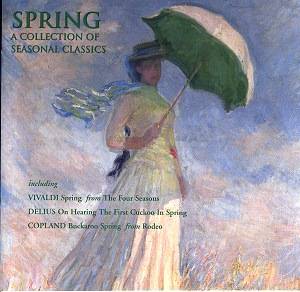
In a recently study for Northumbria University, the Psychologist Leigh Riby said: ‘well-recognised, vibrant, emotive and uplifting first movement, had the ability to enhance mental alertness and brain measures of attention and memory.’
The study measured the response times of 14 participants, who were asked to press the space bar on a keyboard when a green square flashed on a monitor, ignoring a series of other coloured shapes. When listening to the first movement of Vivaldi’s Spring from The Four Seasons, the average response time was 393.8 milliseconds, compared to 408.1 while working in silence, or 413.3 while listening to Vivaldi’s Autumn.
Spring is in a major key, traditionally associated in Western classical music with happy music, as opposed to more sombre minor tunes, but the key of the music was found to have no impact on participants. Autumn, the other major key concerto in the set, was found to have no effect on brain function, along with Summer and Autumn.
It could well be the positive imagery associated with the music that impacted the study. Another recent study found people’s mood could be improved by listening to another piece of programmatic classical music – Rodeo, by Copland, which evokes cheery images of cowboys and barn dances.
This is not the first time that classical music has been seen to boost brain power. The ‘Mozart Effect’ suggests that listening to classical music can improve intelligence, and Facebook users who ‘like’ the composer are statistically more likely to have a higher IQ.

Share it people